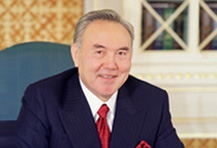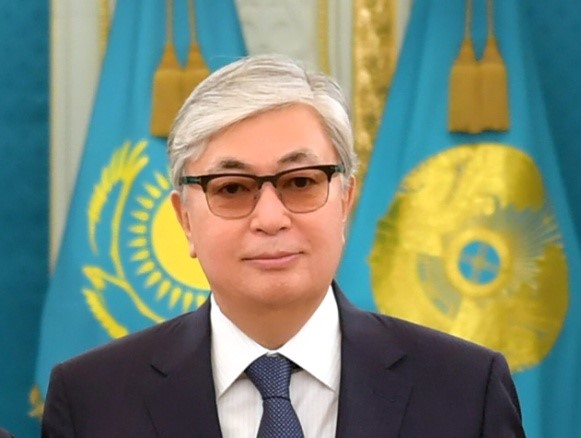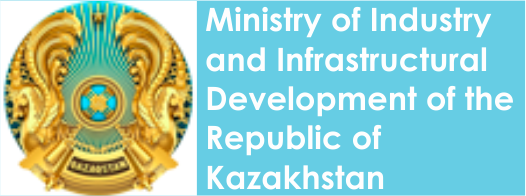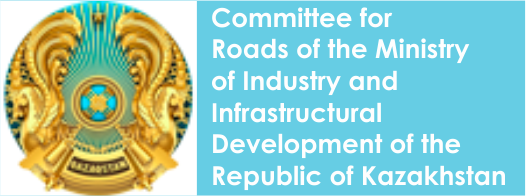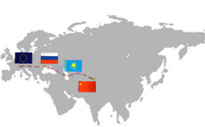
Implementation of Nurly Zhol Government Program for 2020-2025 has been considered at the Government video conference chaired by the Prime Minister Askar Mamin. The Minister of Industry and Infrastructure Development Beibut Atamkulov reported on the implementation of the Program.
The Nurly Zhol Governement Infrastructure Development Program for 2020–2025 is designed to create an efficient and competitive transport infrastructure, develop transit and transportation services, and improve the technological and institutional environment in the country.
According to the Minister of Industry and Infrastructure Development Mr. Atamkulov, within the framework of the Program until 2025, 112 infrastructure projects are planned to be implemented for the total amount of 5.5 trillion tenge.
“The Program includes construction and reconstruction of 10,000 km and maintenance and routine repair of 11,000 km of the republican road network are planned for the next 6 years. The total funds allocation for the road sector will amount to 3.5 trillion tenge. The implementation of the Program will allow to bring a share of the national roads in good and satisfactory condition up to 100%, and increase the length of roads of Category I and II to 60%, the share of toll roads up to 45%, and to ensure 100% the roadside services”, - the Minister informed.
According to Mr. Atamkulov, the road sector plans to repair 9,500 km of Republican and local roads this year. The budget of 2020 allocated for the roads is 680 billion tenge, including 421 billion for the republican roads and 259 billion for the local roads.
“Regarding the Republican roads, construction and reconstruction works will be carried out on 4,000 km of roads. Rehabilitation and corrective maintenance will be carried out on 1,500 km, where 1,100 km will be completed”, the Minister said.
In addition, the road toll systems will be introduced on 5,700 km, compliance of 158 service facilities to the requirements of the national standard will be ensured, 23 gas stations with water closets (WC) and 62 separate WCs will be constructed by the end of the year.
“By yearend, the share of republican roads in good and satisfactory condition will be brought up to 89%, and the local roads up to 75%. At the end of 2020, it is planned to open traffic on the total 2,600 km of roads. All preparatory works have been completed for the timely implementation of the projects”, Mr. Atamkulov said.
As the Minister noted, all the required materials are locally produced. At the end of March 2020, construction and installation works have been commenced in the southern regions.
As favorable weather conditions allows, the works will start in the northern regions, and by the end of April 2020, construction works will commence on all projects.
“At all sites, the necessary measures have been taken to protect personnel from the coronavirus. All employees were provided with the personal protective equipment”, the Minister said.
More than 27,000 km of local roads will be reconstructed by 2025 allowing bringing 95% of the regional and district roads to good and satisfactory condition.
In 2020, 259 billion tenge has been allocated for the repair of local roads, including KZT 201.4 billion for the regional and district roads, and 4.1 billion for the land acquision in the cities of Nur-Sultan and Almaty.
By the end of the year, it is planned to repair 4,000 km of roads by implementing 350 road projects, where 31,000 people will be involved in construction and reconstruction of the roads.
Deputy Prime Minister of the Republic of Kazakhstan Mr. Sklyar has noted that the above projects will create new jobs primarily in the regions, which is one of the Government’s priority tasks.
“This year, a number of projects is planned to be implemented, including an unprecedented number of 2,600 km of newly commissioned roads. The electrification of the railway will continue. It is also planned to introduce Tolling Systems on 11,000 km of Republican roads, which will reduce further allocation of the State budget for the maintenance of toll road sections and allow allocating saved funds for the development of other no less important projects”, Mr. Sklyar said.



